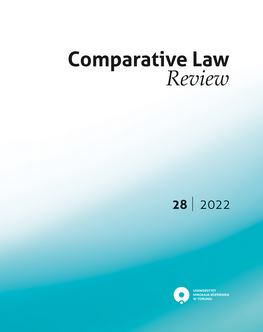ANALYSIS OF AUTONOMOUS CONCEPTS IN THE PRACTICE OF THE EUROPEAN COURT OF HUMAN RIGHTS
ANALYSIS OF AUTONOMOUS CONCEPTS IN THE PRACTICE OF THE EUROPEAN COURT OF HUMAN RIGHTS
Author(s): Kristina TrykhlibSubject(s): Criminal Law, Human Rights and Humanitarian Law, Criminology, EU-Legislation
Published by: Wydawnictwo Naukowe Uniwersytetu Mikołaja Kopernika
Keywords: autonomous concepts; criminal charge; lawfulness; penalty; person of unsound mind; peaceful assembly;
Summary/Abstract: The European Court of Human Rights, when interpreting the rights guaranteed by the European Convention on Human Rights, develops in its jurisprudence autonomous concepts that serve as the foundation for the effective protection of human rights and fundamental freedoms. Thus, the European Court of Human Rights establishes certain standards that are binding on all Member States of the Council of Europe. Autonomous concepts act as a kind of “safeguard” against the abuse and arbitrariness of national authorities. They also contribute to the unification and harmonization of different legal systems, as well as the progress of a uniform judicial practice in the process of interpretation and application of law. The purpose of this article is to reveal the essence and analyse the content and key components of such autonomous concepts as criminal charge, lawfulness, penalty, person of unsound mind, and peaceful assembly in the practice of the European Court of Human Rights.
Journal: Comparative Law Review
- Issue Year: 28/2022
- Issue No: 1
- Page Range: 459-484
- Page Count: 26
- Language: English

